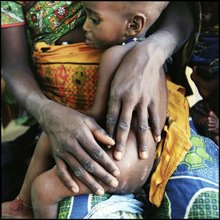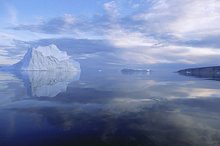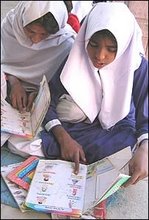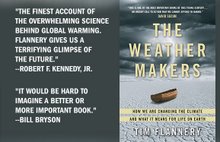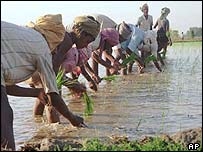PREAMBLE: On April 29, 2011, there was a major oil spill from a pipeline in Northern Alberta, Canada. This adversely affects the Lubicon Cree people living in the area, as well as wildlife, forests, streams and lakes.
By way of background, in November 2009, citing a report by Amnesty International, Global Perspectives drew attention to the estimated $14 billion in revenue generated on Lubicon lands, even as traditional water sources have been contaminated since the onset of resource exploration. Despite this, Lubicon houses lack running water and plumbing. Within 3 years of the first oil wells the number of people dependent on social assistance increased from 10 to 90%. As a matter of human rights, action is required to alleviate these appalling health conditions. In addition, it is now clear also that a competent and independent health team must be provided to the community to address new concerns about the headaches, nausea and other illness experienced since the April 29 spill.
The main aim of this edition of Global Perspectives is to support Amnesty’s call that both federal and provincial (majority Conservative) governments have a responsibility to ensure that such an assessment is carried out with the results fully available to the community as a whole, and to the general public.
Apparently also, access to the spill site is controlled. We therefore also support Amnesty’s call to ensure that the Lubicon people have full access to the spill site so as to document the spill for themselves.
The main focus of this issue is to capture the content of two current information sources: A. A post by Melina Laboucan-Massimo on the Greenpeace site, dated May 4, 2011; and B. A new Amnesty Factsheet which outlines the situation in more technical detail. Both items are reproduced verbatim below:
A. RESIDENTS, INCLUDING CHILDREN, SICK AFTER LARGE OIL SPILL IN ALBERTA’S PEACE REGION
by Melina Laboucan-Massimo - May 4, 2011 at 13:43 on Greenpeace site (cited below)
Little Buffalo community members, including school children, continue to experience nausea, burning eyes and headaches after one of the largest pipeline spills in Alberta history last Friday by Plains All American leaked nearly 30,000 barrels of oil into Lubicon traditional territory in the Peace Region of Northern Alberta.
Instead of attending an in-person community meeting, the Alberta Energy Resources Conservation Board (ERCB) faxed a one-page fact sheet to Little Buffalo School. The fact sheet indicates that 28,000 barrels of crude oil, or 4,500 cubic metres, has spread into nearby stands of “stagnant water.” The spill, April 29 at 7:30 a.m., occurred only 300 metres from local waterways. The ERCB said the spill has been contained, but community members report that the oil is still leaking into the surrounding forest and bog. The ERCB also said to the community that there is “no threat to public safety as a result of the leak.” Yet people are still getting sick, the local school has been shut down and children ordered to stay at home. An investigation into the incident is underway.
“It has been four days since classes were suspended due to the noxious odours in the air. The children and staff at the school were disorientated, getting headaches and feeling sick to their stomachs,” said Brian Alexander, the principle of Little Buffalo School. “We tried to send the children outside to get fresh air as it seemed worse in the school but when we sent them out they were getting sick as well.
“The company and the ERCB have given us little information in the past five days. What we do know is that the health of our community is at stake,” said Chief Steve Nosky. “Our children cannot attend school until there is a resolution, The ERCB is not being accountable to our community; they did not even show up to our community meeting to inform us of the unsettling situation we are dealing with. The company is failing to provide sufficient information to us so we can ensure that the health and safety of our community is protected.”
The ERCB fact sheet states that air monitors are in place on site and have “detected no hydrocarbon levels above Alberta Ambient Air Quality guidelines.” But this is little consolation for a community that is scared to breathe the air. Veronica Okemow has six children, the youngest one attending the school, and she is very worried. “We are deeply concerned about the health effects on the community,” Okemow said. “It is a scary thing when your children are feeling sick from the air. People are scared to breathe in the fumes.”
Melina Laboucan-Massimo, a member of the Lubicon Cree First Nation and also a Greenpeace climate and energy campaigner said: “The Plains All American spill marks the second pipeline spill in Alberta in just a week, with Kinder Morgan spilling just days before. This is an alarm bell for Alberta residents. If this 45-year-old pipeline were to break elsewhere along its route there would be more safety and health hazards. Communities across Alberta and B.C. are demanding an end to this type of risky development; yet the government refuses to listen. Instead it continues on as business as usual without plans for the cleaner, healthier, sustainable future that is possible.”
Source: Greenpeace Canada. Blogpost by Melina Laboucan-Massimo May 4, 2011. http://www.greenpeace.org/canada/en/Blog/residents-including-children-sick-after-large/blog/34569
B. FACTSHEET - BACKGROUND TO THE PIPELINE SPILL ON TRADITIONAL LUBICON LANDS
1. Pipelines and Lubicon lands
There are more than 2300 kms of oil and gas pipe¬lines through the traditional lands of the Lubicon.
According to an Alberta government study, from 1983 to 1997, there were between one and eight leaks or ruptures per year for every 1000 km of pipeline in the province, depending on the kind of pipeline.
In 2008, when the Province of Alberta approved the last major pipeline across Lubicon land (TransCanada Pipeline’s North Central Corridor project) the Alberta Utility Commission denied the Lubicon the opportu¬nity to present their concerns. The Commission ruled that the Lubicon had not established that the project was harmful to their rights. The pipeline was then built over the community’s objections.
2. Indigenous rights denied
The Lubicon Cree have never entered into a treaty with the Government of Canada. They have not given up their rights to their lands and resources through any other legal agreement. Resolution of the dispute requires a negotiated settlement but there have been no negotiations since 2003.
Large-scale development began on Lubicon territory in 1979. Since then, more than 2600 oil and gas wells have been drilled, along with some in situ oil sands extraction.
The scale of development led to the rapid collapse of the Lubicon hunting and trapping economy. At the same time, the community has been denied basic services that most other communities in Canada take for granted, such as running water and sanitation.
Since the early 1980s, the Lubicon have reported pervasive health problems associated with poverty, environmental degradation and cultural erosion. These problems include high rates of infectious dis¬ease such as tuberculosis; disproportionate numbers of miscarriages, stillbirth and other maternal health concerns; and high youth suicide.
The Alberta government has leased approximately 70 percent of Lubicon territory for future oil, gas and minerals development.
3. Repeatedly condemned by the United Nations
In 1990, the United Human Rights Committee ruled that Canada was violating the International Covenant on Civil and Political Rights by failing to properly protect Lubicon land rights from the impact of re¬source extraction activities.
Since then, the treatment of the Lubicon Cree has been condemned by the UN Human Rights Committee again in 2006 and 2007, the UN Committee on Economic, Social and Cultural Rights in 2006, and by the UN Special Rapporteur on the Right to Ad¬equate Housing in 2008. The UN Committee on the Elimination of Racial Discrimination raised concerns about pipeline development in 2008.
In 2010 the UN Special Rapporteur on the Rights of Indigenous Peoples submitted a detailed report to the UN Human Rights Council in which he said there should be no further development on Lubicon land unless the Lubicon people give their consent.
Source: Amnesty International (Canada). Fact Sheet: Background to the pipeline spill on traditional Lubicon lands http://www.amnesty.ca/files/factsheet_context_of_pipeline_spill.pdf
EPILOGUE: On May 15, 2011, efforts at clean up and to contain the impact were suspended due to numerous uncontained forest fires in the region.
FROM a Great Canadian and World Statesman
"A great gulf... has... opened between man's material advance and his social and moral progress, a gulf in which he may one day be lost if it is not closed or narrowed..."
Lester B Pearson
http://nobelprize.org/nobel_prizes/peace/laureates/1957/pearson-lecture.html
Monday, 16 May 2011
Subscribe to:
Comments (Atom)
INSPIRATIONAL WELCOME ............................... from T.S.Eliot's "Little Gidding"
If you came this way From the place you would come from... It would be the same at the end of the journey...
If you came, not knowing what you came for, It would be the same... And what you thought you came for Is only a shell, a husk of meaning... From which the purpose breaks only when it is fulfilled If at all.


